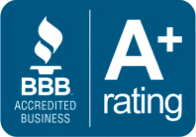With every New Year comes a fresh list of personal goals and business plans, and perhaps a well-timed vacation to unwind from the Holidays. The new year also marks the roll-out of new laws affecting businesses, employers, and individuals. We reviewed the new state and federal laws most likely to affect Oregonians in 2019 and provide a short summary of them below.
Equal Pay in Oregon: Restrictions on Asking about Compensation History and New Anti-Discrimination Protections
As of January 1, 2019, employers must comply with new restrictions on asking job applicants about past or current compensation. In addition, employers need to learn about new anti-discrimination protections for employees and confirm that their own policies do not violate these new laws. In 2017, the Oregon legislature enacted House Bill 2005 (the Equal Pay Act of 2017), which expands employee protections under the pay discrimination statute. Most of the requirements in HB 2005 went into effect on January 1, 2019 pursuant to new regulations located in OAR 839-008-0000 to OAR 839-008-0040.
Oregon employers beware; it is unlawful for an employer to “screen job applicants based on current or past compensation.” ORS 652.220(1)(c). Employers cannot (1) seek the salary history of an applicant or employee from that person or their current or former employer, or (2) use the person’s compensation history to determine their suitability for employment or eligibility for internal transfer within the company. OAR 839-008-0005(1)-(2). You can read more about the new restrictions regarding compensation inquiries in the blog post entitled “Pay Equity – Making Sense of a New Hiring, Promotion and Compensation Framework,” by Brent Wilkins.
Further, employers may not “discriminate between employees on the basis of a protected class in the payment of wages or other compensation for work of comparable character.” ORS 652.220(1)(a). Similarly, employers cannot “[p]ay wages or other compensation to any employee at a rate greater than that at which the employer pays wages or other compensation to employees of a protected class for work of comparable character.” ORS 652.220(1)(b). “Protected class” means “a group of persons distinguished by race, color, religion, sex, sexual orientation, national origin, marital status, veteran status, disability or age.” ORS 652.210(5). “Work of comparable character” means “work that requires substantially similar knowledge, skill, effort, responsibility and working conditions in the performance of work, regardless of job description or job title.” ORS 652.210(12).
Under the revised statutes, employers may pay employees for work of comparable character at different compensation levels if the difference in compensation is based on only on one or more of eight bona fide factors (seniority, merit, measured quantity or quality of production, workplace location, employee travel, education, training, and/or experience). ORS 652.220(2)(a)-(i). In addition, employers cannot reduce an employee’s existing wages to bring their overall pay structure into compliance. ORS 652.220(4).
What does this all mean for Oregon employers? Put simply, an employer cannot pay its employees of the same rank and skillset different salaries unless a statutory basis exists for doing so. Clearly, the factors to consider in determining whether an employer is in compliance with the revised statutes are complex and numerous. If you have questions regarding compliance, please contact BLJ’s employment law attorneys, Heather J. Hansen and Jeremy M. Green.
OregonSaves: Continued Roll-Out of Mandatory Retirement Savings Program
In 2015, the Oregon legislature enacted a state-administered retirement program called OregonSaves. Employers with between 5-19 employees should know about important registration deadlines in 2019.
OregonSaves has a 2.5 year phase-in period, with each employer’s registration deadline depending on its respective number of employees. OAR 170-080-0015(1)(b). Employers with at least 20 employees should have registered in OregonSaves or certified an exemption by December 15, 2018. Employers with 10-19 employees must do so by May 15, 2019; employers with 5-9 employees must do so by November 15, 2019; and, employers with fewer than 4 employees must do so by May 15, 2020. The number of “employees” for each employer is determined by the number of employees listed on the employer’s 2016 4th quarter Oregon Quarterly Tax Report (Form OQ), with a few exceptions listed in OAR 170-080-0015(1)(c).
Employers are exempt from enrollment only if they offer a “qualified plan” to employees, which includes (but is not limited to) 401(k) retirement plans and governmental plans qualified under section 457(b) of the Internal Revenue Code. OAR 170-080-0010(2)(dd). Payroll deduction IRA programs do not qualify as a “qualified plan” for purposes of OregonSaves. Id.
If your Oregon business has between 5-19 employees, you should enroll in OregonSaves before the applicable deadlines in 2019. Watch for communications from the State of Oregon as your deadline approaches. To learn whether your business qualifies for an exemption or what enrollment will mean for your business, please contact BLJ’s employment law attorneys, Heather J. Hansen and Jeremy M. Green.
Spousal Support Ordered Under New or Modified Divorce Judgments: Not Deductible, Not Taxable
If you pay or receive spousal support—or expect to in the future—you should know about important changes in the tax code. Under 26 U.S.C. § 215, spousal support has long been deductible by the payor and taxable to the recipient. However, Section 11051 of the federal Tax Cuts and Jobs Act of 2017 (“TCJA”) struck that spousal support section from the Internal Revenue Code. Under the TCJA, spousal support is neither deductible nor taxable income, if paid pursuant to (1) a divorce or separation judgment entered after December 31, 2018, or (2) a divorce or separation judgment entered on or before December 31, 2018, if modified after December 31, 2018 and the modification expressly provides for treatment under the TCJA. This change greatly affects the tax implications of divorces entered or modified after December 31, 2018.
Advance Healthcare Directives: New Form Required
Starting on January 1, 2019, Oregon residents must use a new form of advance healthcare directive. In 2018, the Oregon legislature enacted House Bill 4135, which updated the statutorily-required form of advance directive and created a 13-member committee to periodically review and revise the form.
An advance healthcare directive enables you to both specify end-of-life healthcare directions for health care providers, and to also designate another person as your “health care representative,” who will make health care decisions on your behalf if you cannot speak for yourself. The new form streamlines the process of completing an advance directive by allowing the signature of two witnesses (as already required under the previous iteration of ORS 127.531) or a notary.
Beginning on January 1, 2019, the new form provided in House Bill 4135 must be used for advance directives, though advance directives signed prior to January 1, 2019 will continue to be effective. Advance directives are an important part of planning for one’s end-of-life, and we encourage completing one of these forms as a component of your overall estate plan.
If you have questions regarding the new advance directive form, or about estate planning in general, please contact BLJ’s estate planning attorneys, John D. Sorlie, Melissa P. Lande and Lindsay E. Gardner.
Article By James Fraser

